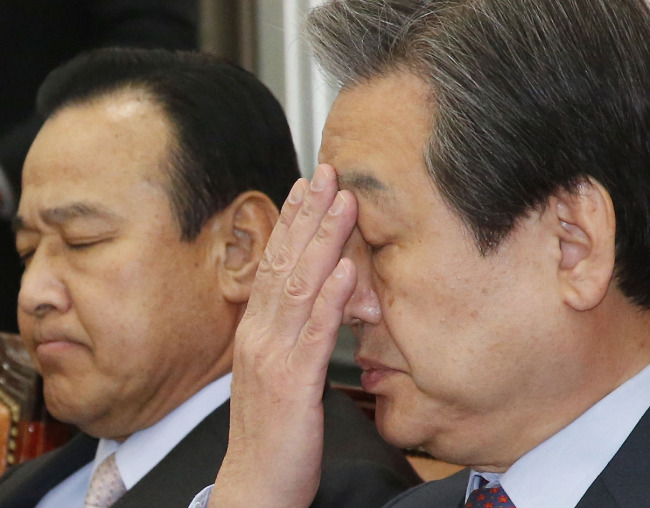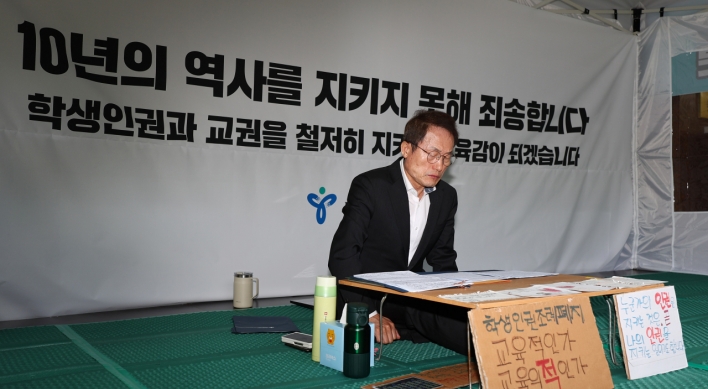Korea eyes retroactive law to allow more tax relief
By Park Hyung-kiPublished : Jan. 21, 2015 - 21:45
The Finance Ministry and the ruling Saenuri Party agreed Wednesday to revise tax laws in April to expand tax rebates for multiple-child and single-person households, and introduce new tax credits to encourage childbirth.
The government will also raise tax credit rates for pension investments. The changes will apply retroactively, officials said.
“There are problems in the tax refund process under the current law,” Finance Minister Choi Kyung-hwan said during a meeting with party officials.
He added that his ministry would look closely at the result of the year-end tax settlement applications, and prepare necessary changes as long as the ruling party takes legislative action to enact a retroactive law on some of the public’s key concerns.
Finance Ministry policymakers held an urgent meeting with Saenuri lawmakers Wednesday to discuss how to amend the current tax codes, which are expected to force a slew of workers on average salaries to make extra tax payments next month.
The government will also raise tax credit rates for pension investments. The changes will apply retroactively, officials said.
“There are problems in the tax refund process under the current law,” Finance Minister Choi Kyung-hwan said during a meeting with party officials.
He added that his ministry would look closely at the result of the year-end tax settlement applications, and prepare necessary changes as long as the ruling party takes legislative action to enact a retroactive law on some of the public’s key concerns.
Finance Ministry policymakers held an urgent meeting with Saenuri lawmakers Wednesday to discuss how to amend the current tax codes, which are expected to force a slew of workers on average salaries to make extra tax payments next month.

Although the government will not be able to fully undo some of the revised tax benefits, the two sides will seek to raise tax credit rates for categories such as education and medical spending.
“We may not be able to change back (tax credits) to tax deductions, but we will have to consider readjusting the rates,” said a Saenuri Party lawmaker.
“This has become inevitable as the public uproar continues against the current tax system concerning education and medical expenses.”
Saenuri Party leader Kim Moo-sung reiterated that it would correct some of the tax codes that had been ill-planned during the policymaking stage.
Some ruling party lawmakers also cited the need to readjust the system to expand tax credits for child care spending to counter the country’s low birthrate, while the opposition New Politics Alliance for Democracy proposed raising the tax credit rates from 15 percent to 20 percent.
The NPAD also called on the government to withdraw its proposal to reduce taxes on the rich, and to rapidly “normalize” the corporate taxation system.
By Park Hyong-ki (hkp@heraldcorp.com)




![[KH Explains] No more 'Michael' at Kakao Games](http://res.heraldm.com/phpwas/restmb_idxmake.php?idx=644&simg=/content/image/2024/04/28/20240428050183_0.jpg&u=20240428180321)












![[Herald Interview] Mistakes turn into blessings in street performance, director says](http://res.heraldm.com/phpwas/restmb_idxmake.php?idx=652&simg=/content/image/2024/04/28/20240428050150_0.jpg&u=20240428174656)
